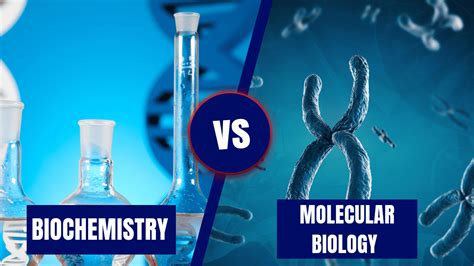Introduction

The living world is an intricate tapestry of biological processes, from the smallest microorganisms to towering trees. Understanding the molecular foundations of these processes is crucial for unraveling the mysteries of life. Two closely related disciplines, biochemistry and molecular biology, delve into this enigmatic realm, illuminating the structure, function, and interactions of molecules that govern biological systems.
Biochemistry: The Cornerstone of Cellular Function
- Definition: Biochemistry explores the chemical composition and reactions that occur within living organisms.
- Key Focus: Biochemistry investigates the metabolism of carbohydrates, proteins, lipids, and nucleic acids.
- Applications: Understanding biochemical pathways enables us to diagnose and treat diseases, develop new drugs, and improve agricultural practices.
- Key Figures: According to the American Chemical Society, over $100 billion is invested annually in biochemical research.
Molecular Biology: Unlocking the Genetic Code
- Definition: Molecular biology focuses on the structure, function, and manipulation of genetic material (DNA and RNA).
- Key Focus: Molecular biologists study gene expression, protein synthesis, and genetic engineering.
- Applications: Molecular biology has revolutionized medicine, leading to advancements in gene therapy, personalized medicine, and diagnostic testing.
- Key Figures: The global molecular biology market is projected to reach $136 billion by 2026, as stated by Grand View Research.
Key Differences: A Comparative Analysis
| Characteristic | Biochemistry | Molecular Biology |
|---|---|---|
| Primary Focus | Chemical composition and reactions of molecules | Genetic material (DNA and RNA) |
| Tools | Mass spectrometry, spectrophotometry | DNA sequencing, PCR, gene cloning |
| Applications | Metabolism, drug development, agriculture | Gene therapy, personalized medicine, diagnostics |
| Career Paths | Biochemist, clinical chemist | Molecular biologist, geneticist |
Commonalities: A Shared Foundation
Despite their differences, biochemistry and molecular biology share fundamental principles and techniques:
- Both disciplines utilize analytical methods to investigate molecular structures and interactions.
- They overlap in areas such as genomics, proteomics, and metabolic pathways.
- Research in both fields contributes to our understanding of human health, disease, and the environment.
New Frontiers: Pushing the Boundaries
Advances in technology have opened new avenues for exploration in both biochemistry and molecular biology:
- Bioinformaticians: Use computational tools to analyze vast amounts of biological data, identifying patterns and predicting molecular functions.
- Synthetic biologists: Design and construct new biological systems from scratch, creating novel applications in medicine, energy, and environmental remediation.
- Astrobiologists: Investigate the potential for life beyond Earth, searching for biochemical signatures in extraterrestrial environments.
Table 1: Applications of Biochemistry
| Industry | Application |
|---|---|
| Healthcare | Drug development, disease diagnosis |
| Agriculture | Crop improvement, pest control |
| Environmental Science | Water quality monitoring, pollution control |
| Biotechnology | Industrial enzymes, biofuels |
Table 2: Applications of Molecular Biology
| Industry | Application |
|---|---|
| Healthcare | Gene therapy, stem cell research |
| Agriculture | Genetically modified crops, disease resistance |
| Forensics | DNA fingerprinting, paternity testing |
| Conservation | Species identification, population genetics |
Table 3: Common Mistakes to Avoid
| Mistake | Consequence |
|---|---|
| Confusing biochemistry with molecular biology | Misinterpreting the nature of biological processes |
| Overgeneralizing research findings | Drawing conclusions based on limited data |
| Neglecting the importance of both disciplines | Limiting insights into biological systems |
Conclusion
Biochemistry and molecular biology are intertwined disciplines that delve into the molecular machinery of life. Through meticulous research and technological advancements, these fields have unlocked unprecedented insights into our own biology and the world around us. As we continue to unravel the complexities of the molecular realm, new applications and discoveries await that have the potential to transform our understanding of life itself. By embracing the synergy between biochemistry and molecular biology, we can advance scientific knowledge, improve human health, and empower future generations.
